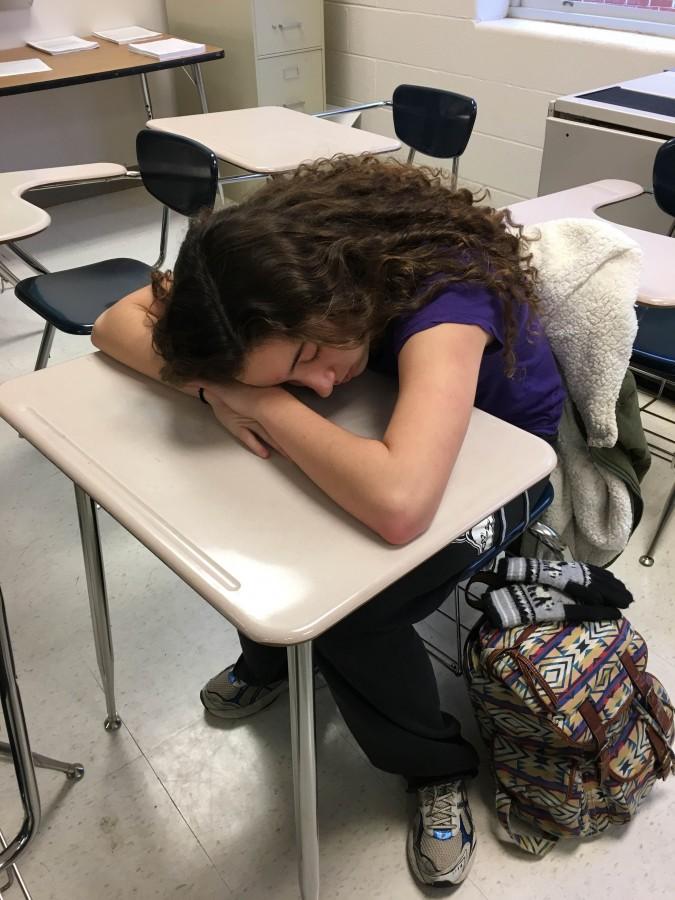Phones Should Go to Sleep Before Students Do
The blue light emitted from cell phones disrupts students’ sleep.
January 4, 2016
A generation of addicts. Facebook, YouTube, Netflix, Twitter, Instagram. All distractions. All addictions. Today’s society is consumed with the use of cellphones and electronics, and these distractions can have a negative effect on one’s quality of sleep.
An hour before going to sleep, cell phones and other electronics should not be used because they lower one’s quality of sleep, pose health risks and create interruptions at night.
The main problem with using electronics is that they release blue light. Blue light is detrimental to one’s circadian rhythm and thus negatively affects the condition of one’s sleep.
According to a study conducted by the Rensselaer Polytechnic Institute Lighting Research Center, exposure to blue light lowers melatonin concentrations.
Melatonin is a hormone that is responsible for triggering the onset of sleep; with lowered melatonin levels, falling asleep is harder to achieve.
Many argue that they need to use their cell phones and electronics to check emails and do homework late at night. If this pertains to you, there are several apps such as F.lux that allow you to change the blue light of your screen to a warmer light.
Additionally, exposure to blue light before sleep lowers how much REM sleep a person receives. This stage of the sleep cycle is the most important because it’s imperative to revitalization of the body and mind. It’s a shame that students are losing precious sleep and dreams because of their addiction to social media.
A joint study conducted by Harvard Medical School, Brigham Women’s Hospital and the German Institute of Aerospace Medicine showed that those who read regular printed books before bed as opposed to electronic e-books fell asleep 10 minutes quicker and displayed more periods of REM sleep than those who didn’t.
The same study also showed that those who read the e-book during the evening reported feeling sleepier in the morning than those that read the printed book before going to bed. Maybe instead of complaining about school start times, students should worry about their pre-bedtime electronic use.
Many students complain about not getting enough sleep, but if students stop using electronics before bed, then their quality of sleep and possibly even performance in school will improve.
According to a 2015 study conducted by McGill University and the Douglas Mental Health University Institute in Montreal, children with better quality sleep perform better in math and language subjects.
Aside from academic consequences, a lack of sleep causes other health risks.
The Center for Disease Control (CDC) lists insufficient sleep as a public health problem because lack of sleep is linked to vehicle crashes, occupational errors, hypertension, diabetes, depression and obesity.
Our generation is obsessed with cell phones, and according to the Harvard Medical School joint study, 90 percent of Americans use electronics within one hour of going to sleep.
There is a larger problem in society that today’s teens and millennials are addicted to their cell phones.
According to a study published in The Journal of Behavioral Addictions, female college students spend an average of 10 hours a day using their cell phones and male students spend around eight hours a day. Sixty percent of the participants in the study reported that they are addicted to their cell phones.
Give up your cell phone for one hour and read a novel. Exercise for an hour. Cook for an hour. Clean for an hour. Play with your dog or little brother for an hour. Stop being in love with your cell phones. Put your obsession with electronics to rest and feel the effects a good night of sleep has on your body.


